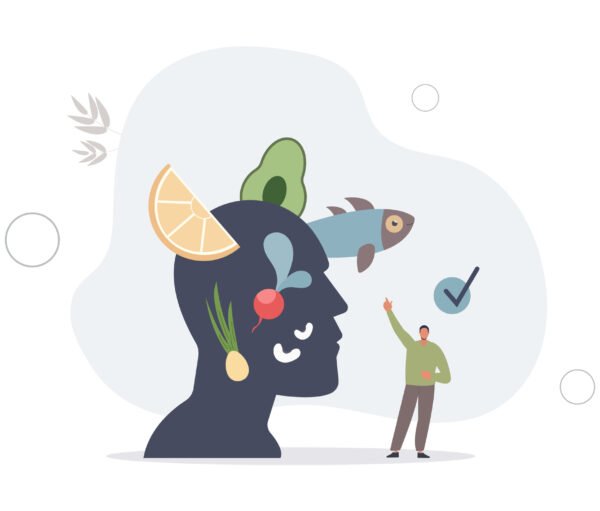The MIND Diet for Cognitive Health

As we age, many of us worry about maintaining our mental sharpness and protecting our cognitive health. While genetics play a role in brain aging, emerging research shows that what we eat can significantly impact our risk of cognitive decline and dementia. Enter the MIND diet—a science-backed eating pattern specifically designed to nourish and protect your brain.
The MIND diet stands for Mediterranean-DASH Intervention for Neurodegenerative Delay. It combines the best elements of two well-researched eating patterns: the Mediterranean diet and the DASH (Dietary Approaches to Stop Hypertension) diet. Developed by researchers at Rush University, this dietary approach focuses specifically on foods that research suggests may help preserve cognitive function and reduce the risk of Alzheimer’s disease.
Unlike restrictive fad diets, the MIND diet is a flexible, sustainable way of eating that emphasizes nutrient-dense foods while limiting those that may contribute to brain aging and inflammation.
The MIND diet highlights 10 brain-healthy food groups that should be regular parts of your eating pattern:
Leafy green vegetables: Spinach, kale, collard greens, and other dark leafy vegetables are packed with folate, vitamin K, and antioxidants that support brain health. Aim for at least six servings per week.
Other vegetables: Beyond leafy greens, colorful vegetables provide essential nutrients and fiber. The diet recommends at least one serving of non-leafy vegetables daily.
Berries: Blueberries and strawberries are particularly rich in flavonoids, compounds that may improve memory and slow cognitive decline. Include berries in your diet at least twice a week.
Nuts: Almonds, walnuts, and other nuts provide healthy fats, protein, and vitamin E, which may protect brain cells from damage. A handful most days of the week is ideal.
Whole grains: Brown rice, quinoa, oats, and whole wheat products provide steady energy for the brain and important B vitamins. Aim for three or more servings daily.
Fish: Fatty fish such as salmon, sardines, and mackerel are rich in omega-3 fatty acids, which are crucial for brain health. Include fish in your diet at least once per week.
Beans and legumes: Lentils, chickpeas, and black beans provide protein, fiber, and folate. Try to include them in meals at least three times per week.
Poultry: Chicken and turkey are lean protein sources that support overall health. Two or more servings per week are recommended.
Olive oil: Rich in monounsaturated fats and antioxidants, olive oil should be your primary cooking oil and salad dressing base.
Wine: Moderate red wine consumption (one glass per day) may provide brain-protective compounds, though this is optional and not recommended for those who don’t already drink alcohol.
Remember that consistency matters more than perfection. Following the MIND diet even partially can provide benefits, and the foods it emphasizes support overall health beyond just brain function.
A study from the University of Hawaii at Manoa followed adults between the ages of 45 and 75 years old over the course of three decades. Participants who adhered closely to the MIND diet had between a 9% and 13% lower risk of developing Alzheimer’s disease.
“Our study findings confirm that healthy dietary patterns in mid to late life and their improvement over time may prevent Alzheimer’s and related dementias,” said Song-Yi Park, Ph.D., associate professor at the University of Hawaii at Manoa. “This suggests that it is never too late to adopt a healthy diet to prevent dementia.”
If you’re concerned about cognitive decline or have specific health conditions, consult with your health care provider before making significant dietary changes. They can help you determine if the MIND diet is appropriate for your individual needs and health goals.
Starting today, you can take meaningful steps toward protecting your brain health through the simple act of choosing foods that nourish both your body and mind. Your future self will thank you for the investment you make in your cognitive health today.
This article is not intended to replace the advice of your health care provider.
Source: IlluminAge with information from the University of Hawaii.


